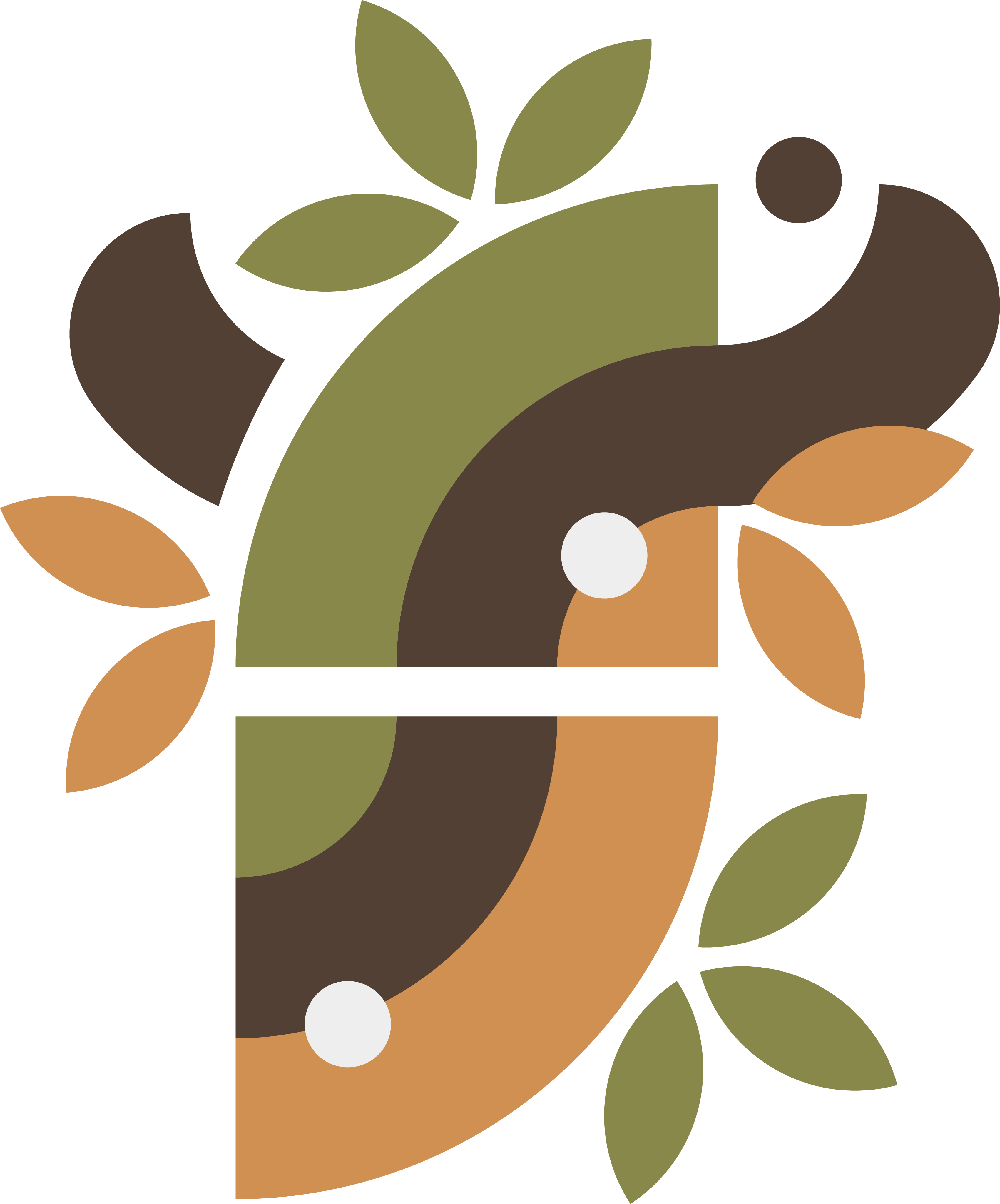SAGE Events
Upcoming Events
February 18, 2026 - Evolution of Bison with Wes Olson (Webinar)
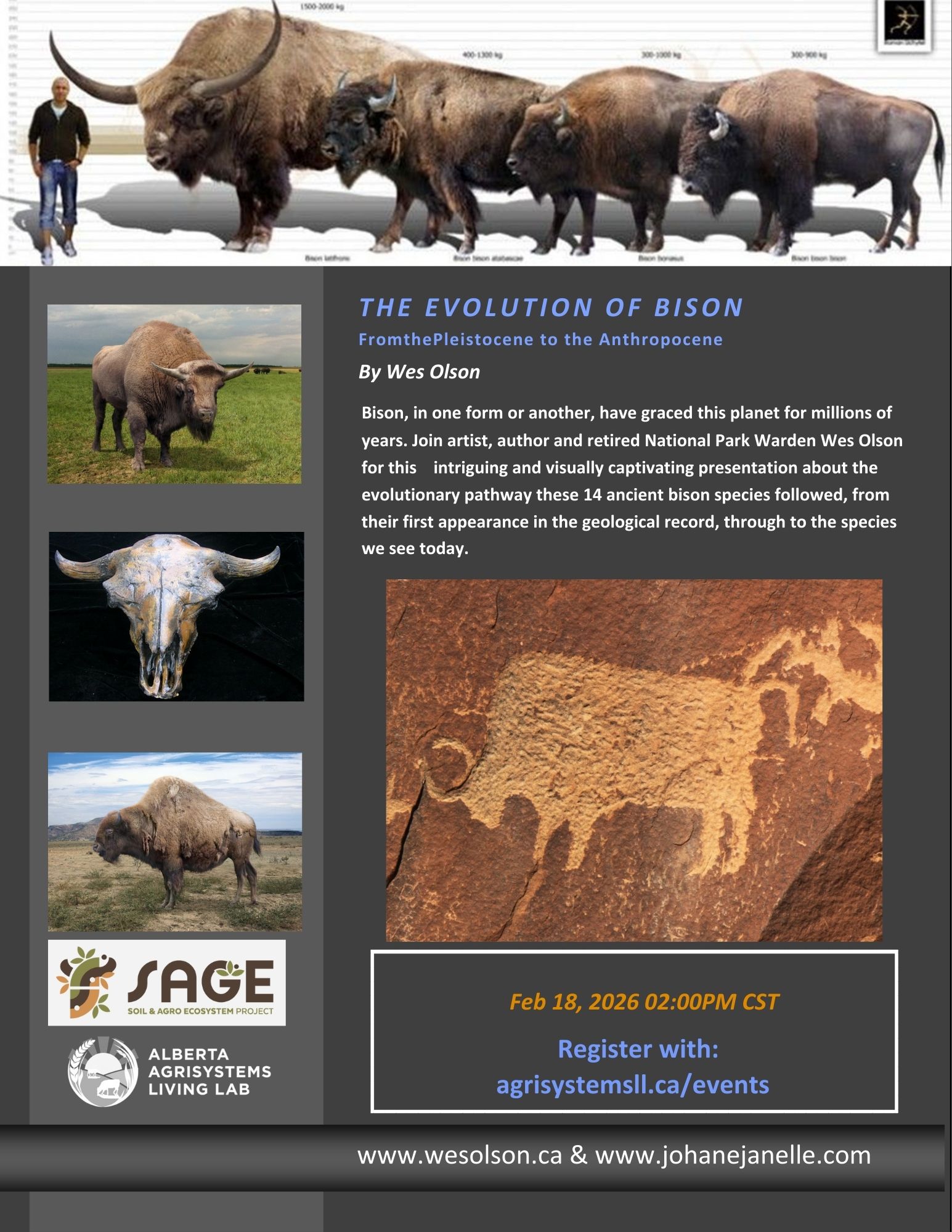
Presented in partnership with the Alberta AgriSystems Living Lab.
Join us to learn about Buffalo evolution with Wes Olson!
This webinar is a look back at the prehistoric species of bison and how each of these evolved, adapted, and then either went extinct or developed into the next in line. Tracing the geographic distribution of bison over the millennia, the audience is drawn forward in time to the plains and wood bison that currently live on Turtle Island.
Wes Olson has spent over 35 years working closely with buffalo first as a Parks Canada warden and now as a bison consultant. He and Johane Janelle literally 'wrote the book' on buffalo ecology ("The Ecological Buffalo: On the trail of a keystone species").
Wednesday, February 18, 2pm CST
March 8, 2026 - Soil Session at Seedy Sunday (In-person)
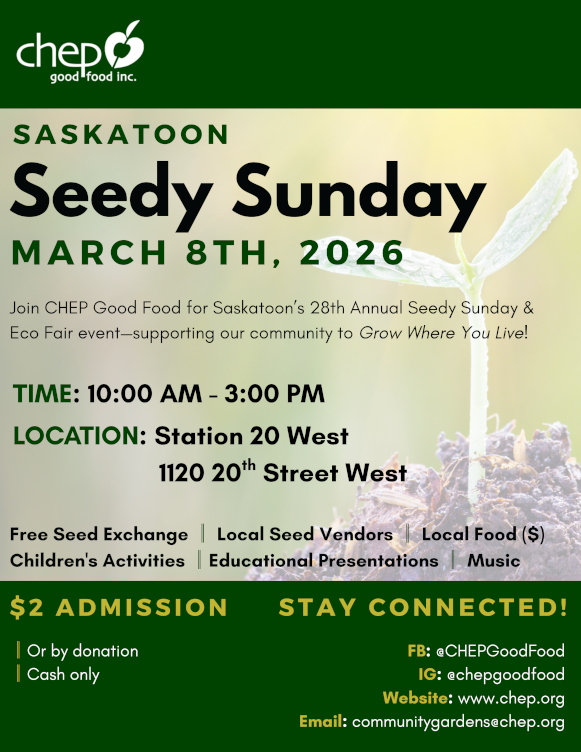
Join SAGE team soil scientists Lauren and Teresa at Seedy Sunday!
We will be leading a session from 12:30pm - 1:15pm
Practice hands-on soil texturing and discuss soil health for gardening. Come prepared with your soil questions and be ready to get your hands dirty!
March 18, 2026 - The Buffalo Treaty: Rematriation, Revitalization, Relationship with Katira Crow Shoe (Webinar)
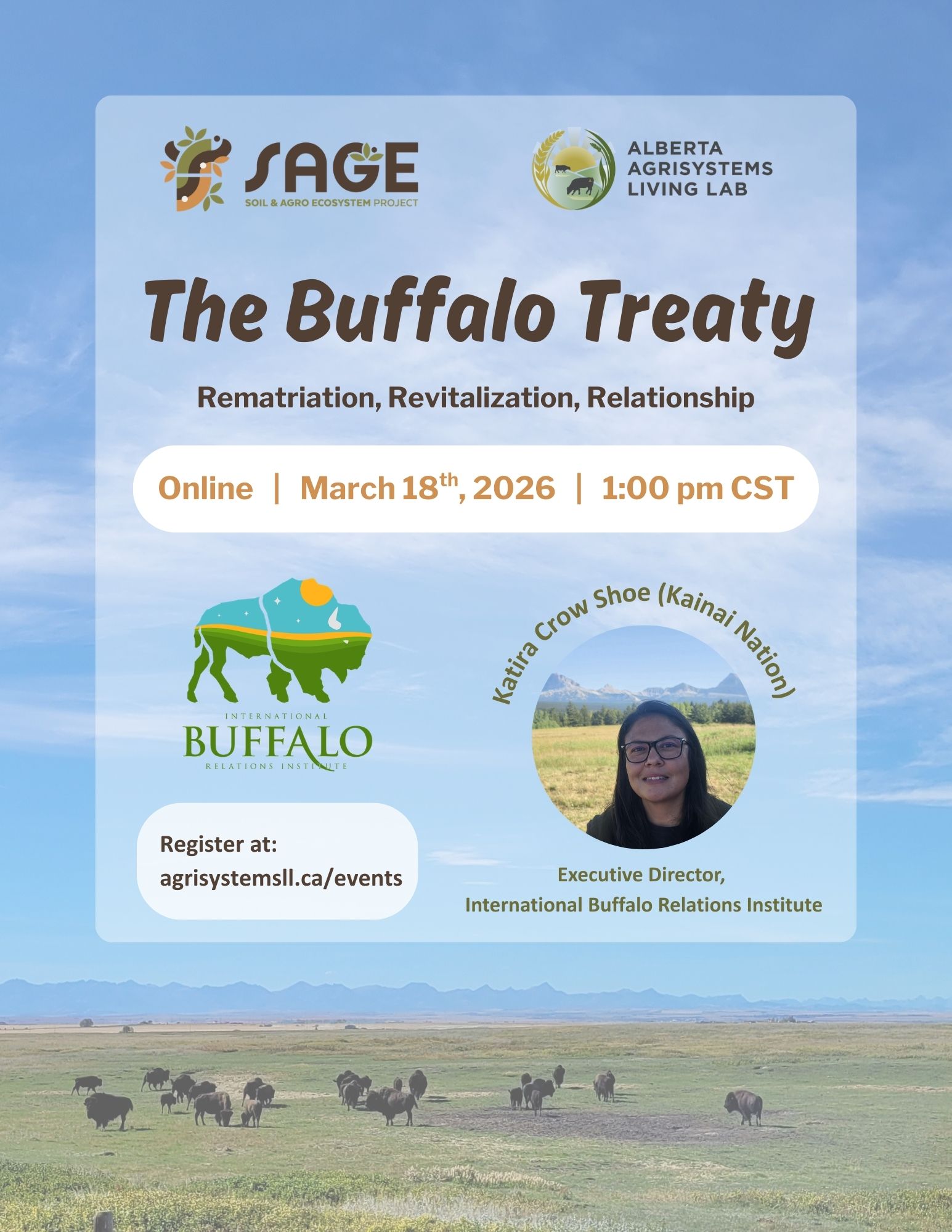
Join us to learn about the Buffalo Treaty with Katira Crow Shoe!
This presentation will introduce the International Buffalo Relations Institute (IBRI) and how they promote the implementation of The Buffalo: A Treaty of Cooperation, Renewal and Restoration. The Institute contributes to transformative change towards Buffalo Consciousness, Buffalo Rematriation and ecological and cultural renewal in the great plains of North America. Participants will learn about the creation of the Buffalo Treaty and The Buffalo Treaty's intent to encourage signatories and supporters to create systemic change, specifically in the areas of conservation, food sovereignty, and climate change.
Katira Crow Shoe is a member of the Kainai Nation of the Blackfoot Confederacy and is part of the Akai’pookaiksi (Many Children) Clan. Katira grew up on the Blood Reserve in Southern Alberta with the Rocky Mountains in her front yard and the prairie ocean at her doorstep. Because of Katira’s rural upbringing, she is tethered to the land and is passionate about advocating for the land, plants, animals, and Blackfoot culture and helping others understand how they are part of our holistic well-being. Currently, Katira’s family, siblings, and parents are all working to heal the land by creating an intergenerational Buffalo ranch. Katira is proud to know her children, nieces, and nephews will be the generation who grow up with Buffalo, normalizing their presence.
Wednesday, March 18, 1pm CST
Presented in partnership with the Alberta AgriSystems Living Lab.
August 18-20, 2026 - Indigenous Farm & Food Festival (In-Person)
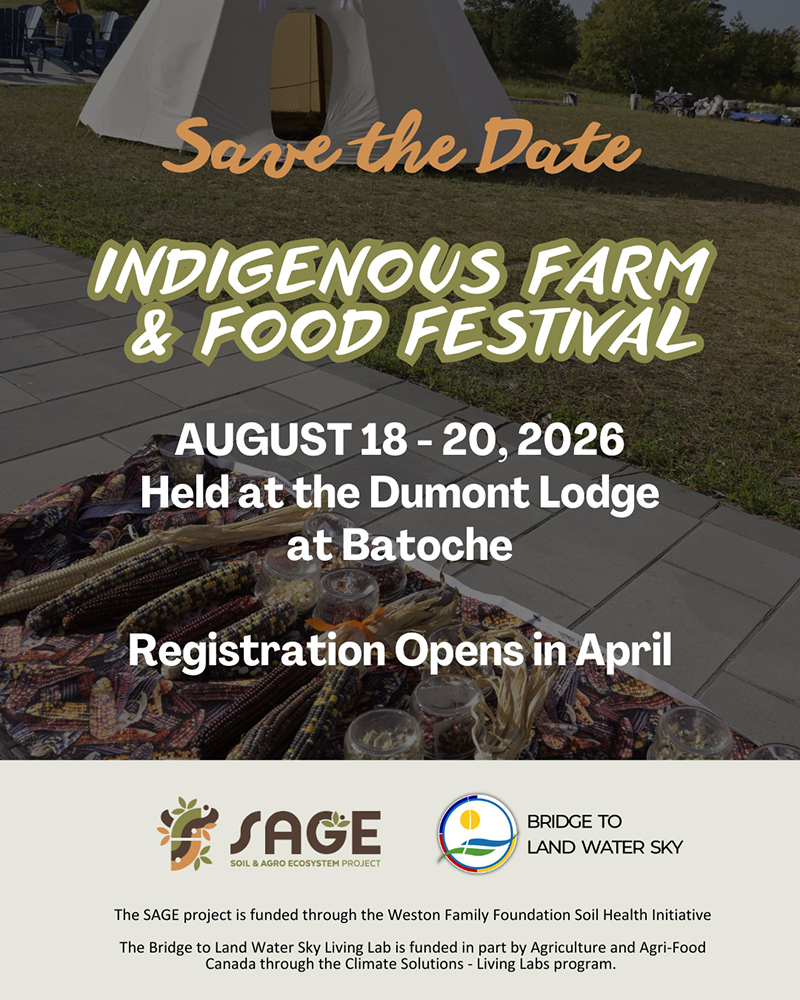
Past Events
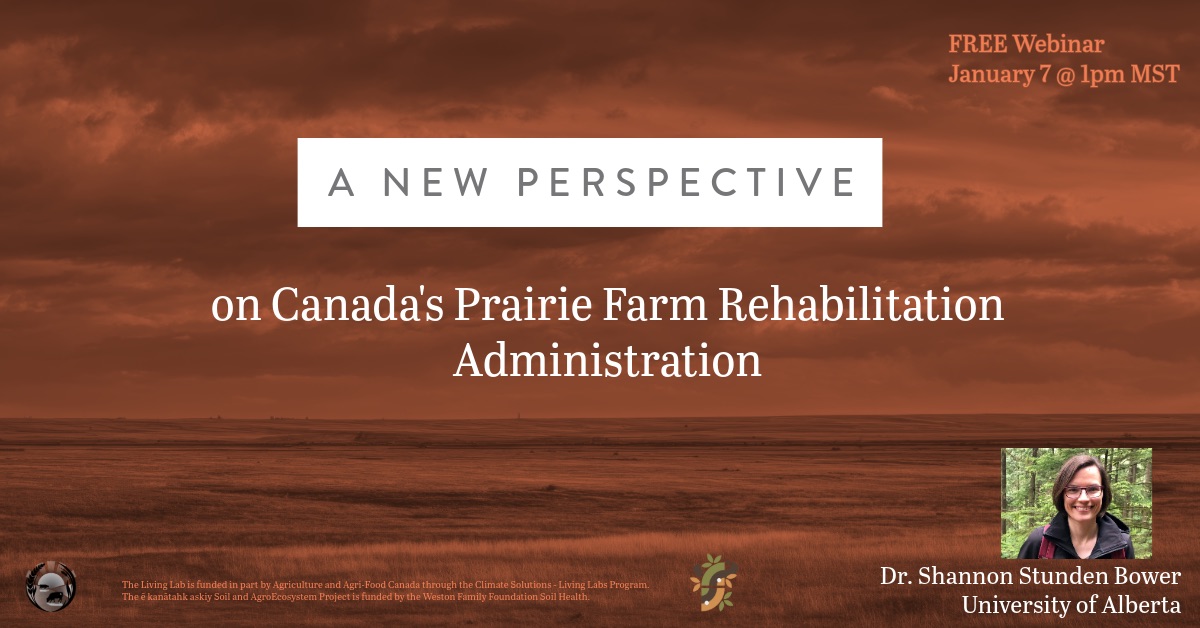
Join us to learn about the impact of the Prairie Farm Rehabilitation Administration (PFRA) with University of Alberta professor Dr. Shannon Stunden Bower.
Register here
Wednesday, January 7th, 2pm CST, virtual
Free to attend
Created in 1935, the Canadian federal government’s Prairie Farm Rehabilitation Administration (PFRA) was active for over seven decades. This presentation will offer an updated take on the PFRA, one that is rooted in extensive historical research and that considers the effects of this agency on prairie Indigenous communities.
Presented in partnership with the Alberta AgriSystems Living Lab

Location: Dumont Lodge at Batoche
Registration: Register here
This gathering is for Indigenous participants and those who are employed by or directly work with Indigenous communities and organizations.
There is no cost to attend!
Agenda
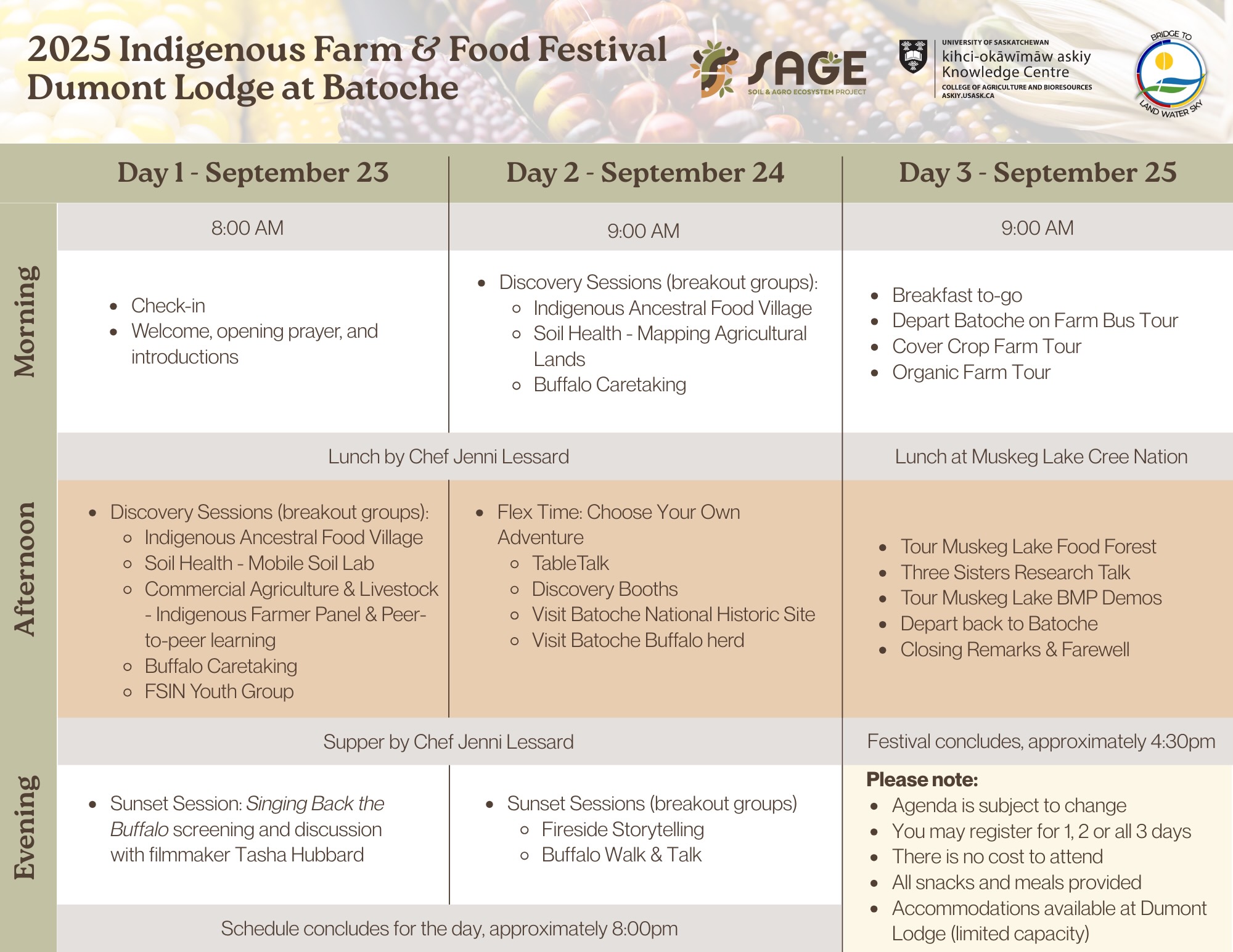
Description
Following the success of the inaugural event in Meadow Lake with Flying Dust First Nation, we’re excited to co-host the second annual Indigenous Farm & Food Festival—a three-day interactive experience exploring Indigenous food systems, soil health, regenerative agriculture and buffalo caretaking. Through hands-on workshops, guided farm tours, and storytelling, participants will connect with the land, hear from local experts, and learn through a mix of Traditional Knowledge and scientific approaches. Expect immersive learning, meaningful conversations, and outdoor exploration—all set against the rich cultural backdrop of Batoche, SK and Muskeg Lake Cree Nation.
Meals will be provided throughout - a curated menu with locally-sourced ingredients, prepared by Métis Chef Jenni Lessard
Goals of the Festival
- Deepen connections to Indigenous food systems, land stewardship, and sustainable agriculture.
- Provide hands-on learning through interactive workshops, storytelling, and guided explorations.
- Celebrate Indigenous knowledge and traditions in farming, food, and environmental sustainability.
- Foster community engagement by bringing together participants in shared experiences.
- Encourage reflection and action on regenerative agriculture and food sovereignty.
Itinerary
- Day 1 - September 23: Participants will take part in hands-on discovery sessions in smaller breakout groups exploring Indigenous food systems, soil health, regenerative agriculture and buffalo caretaking.
- Day 2 - September 24: Breakout sessions on Indigenous food systems, soil health, regenerative agriculture and buffalo caretaking will take place in the morning. In the afternoon, participants will have a chance to network, visit the buffalo, go on-self guided visits in the Batoche area and participate in other activities.
- Day 3 - September 25: All participants will join a shared farm tour experience, including a bus tour stopping at several farms and a visit to the Muskeg Lake Cree Nation Food Forest
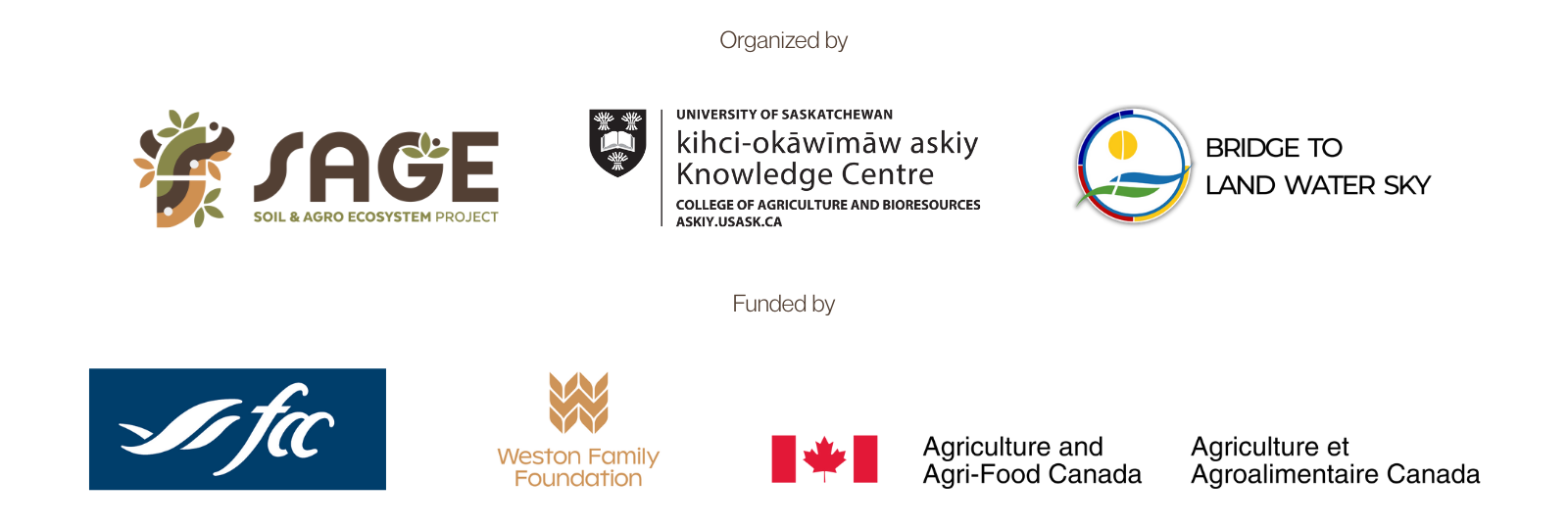
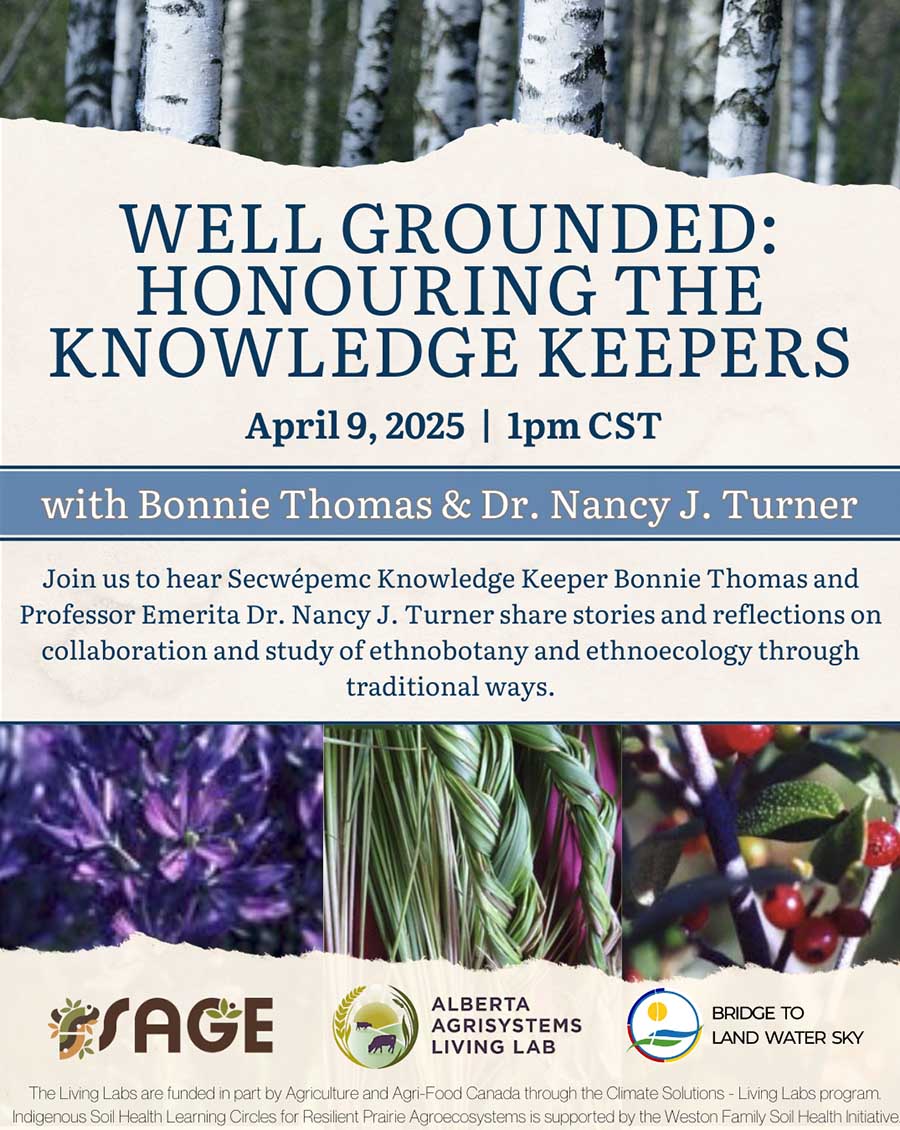
Join us to hear Secwépemc Knowledge Keeper Bonnie Thomas and Professor Emerita Dr. Nancy J. Turner share stories and reflections on collaboration and study of ethnobotany and ethnoecology through traditional ways.
Wednesday, April 9, 1pm CST, virtual
Free to attend
Presented in partnership with the Alberta AgriSystems Living Lab and Bridge to Land Water Sky Living Lab.
View the recording
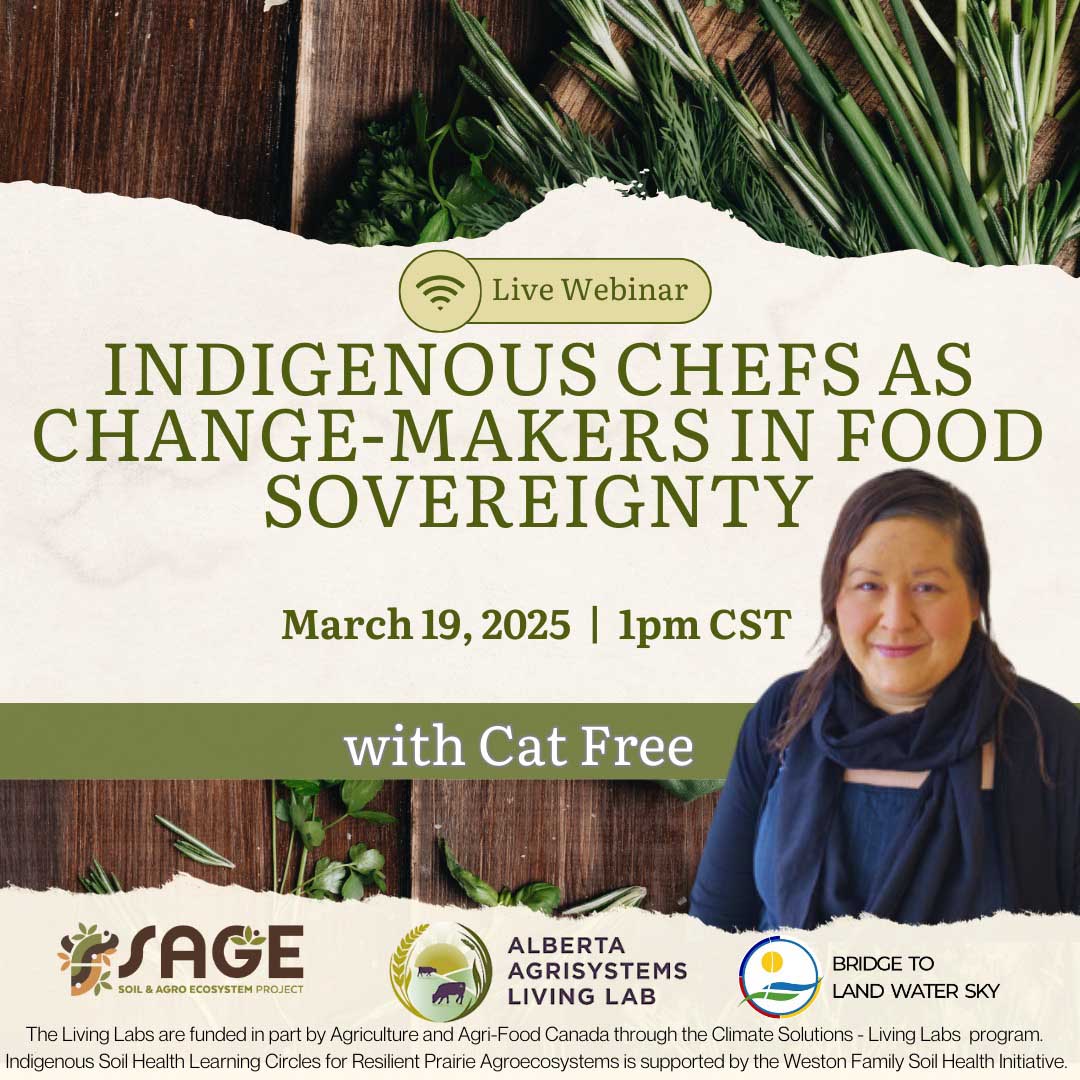
Join Us and Cat Free from Trent University to learn more about Indigenous Chefs and their role in food sovereignty, and for a broader conversation on Indigenous knowledges around food.
Cat Free's graduate research is looking at Indigenous Chefs across Ontario who have stepped beyond their trade certification and training, and have moved into food sovereignty for the knowledge and benefit of Indigenous communities, Indigenous individuals, and beyond.
Cat Free is a PhD student in Indigenous Studies at Trent University, researching Indigenous Food Systems. She is a former Red Seal Chef and practiced for 22 years before pursuing her Bachelor's of Social Work and Master's of Social Work. Cat is a member of the Pays Plat First Nation, and lives and studies in Treaty 20, traditional territory of the Michi Saagiig and Chippewa Nations.
View the recording
Presented in partnership with the Alberta AgriSystems Living Lab and Bridge to Land Water Sky Living Lab.
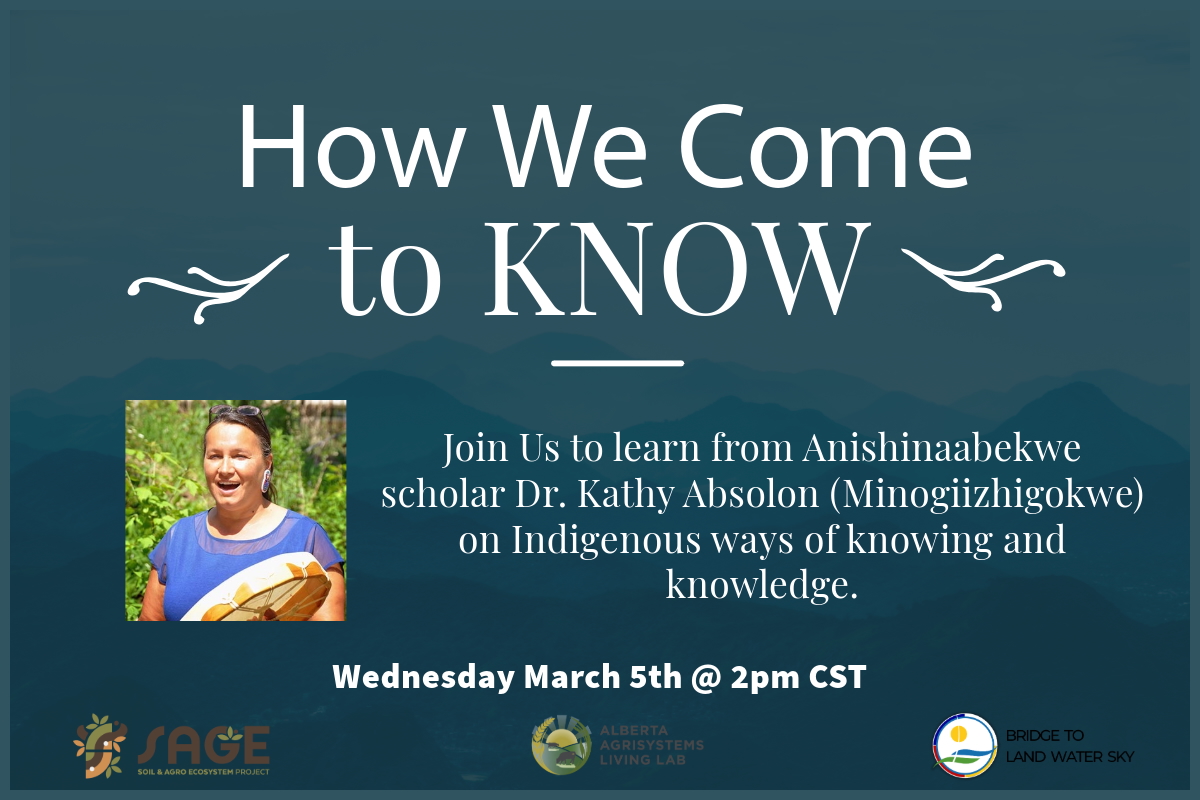
Join Anishinaabekwe scholar Dr. Kathy Absolon (Minogiizhigo kwe) to learn more about Indigenous ways of knowing and knowledge. Dr. Absolon's academic journey has been a pathway of unlearning, healing, re-learning and finding who she is as an Indigenous woman & what her place is in the academy. Dr. Absolon works at Wilfred Laurier University and is the Director of the Centre for Indigegogy.
This webinar will not be recorded.
Presented in partnership with the Alberta AgriSystems Living Lab and Bridge to Land Water Sky Living Lab.
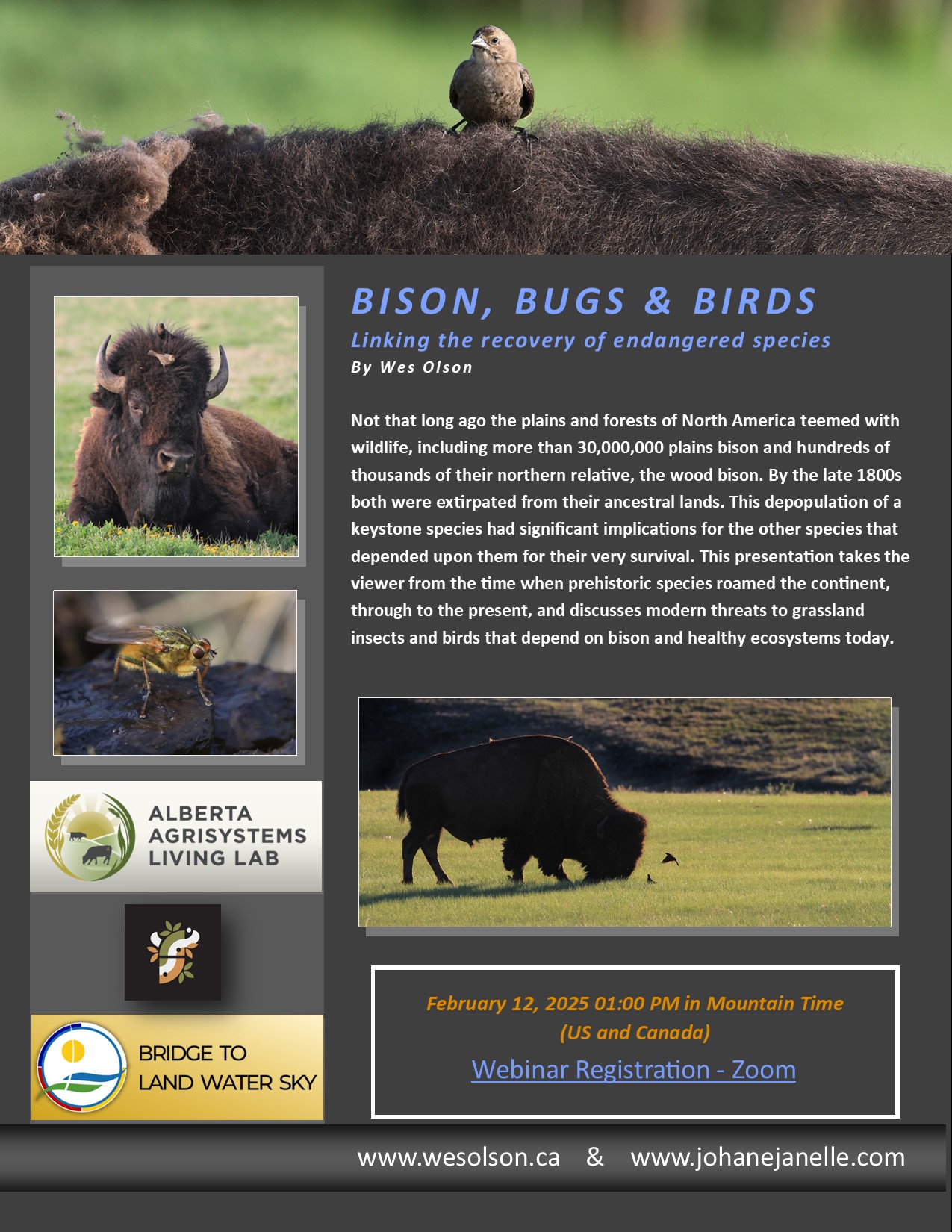
Presented in partnership with the Alberta AgriSystems Living Lab and Bridge to Land Water Sky Living Lab.
Join us to learn about Buffalo ecology with Wes Olson!
Not that long ago the plains and forests of North America teemed with wildlife, including more than 30,000,000 plains bison and hundreds of thousands of their northern relative, the wood bison. By the late 1800s both were extirpated from their ancestral lands. This depopulation of a keystone species had significant implications for the other species that depended upon them for their very survival. This presentation takes the viewer from the time when prehistoric species roamed the continent, through to the present, and discusses modern threats to grassland insects and birds that depend on bison and healthy ecosystems today.
Wes Olson has spent over 35 years working closely with buffalo first as a Parks Canada warden and now as a bison consultant. Wes is a published author and literally 'wrote the book' on buffalo ("The Ecological Buffalo: On the trail of a keystone species").
Wednesday, February 12, 2pm CST
View the recording
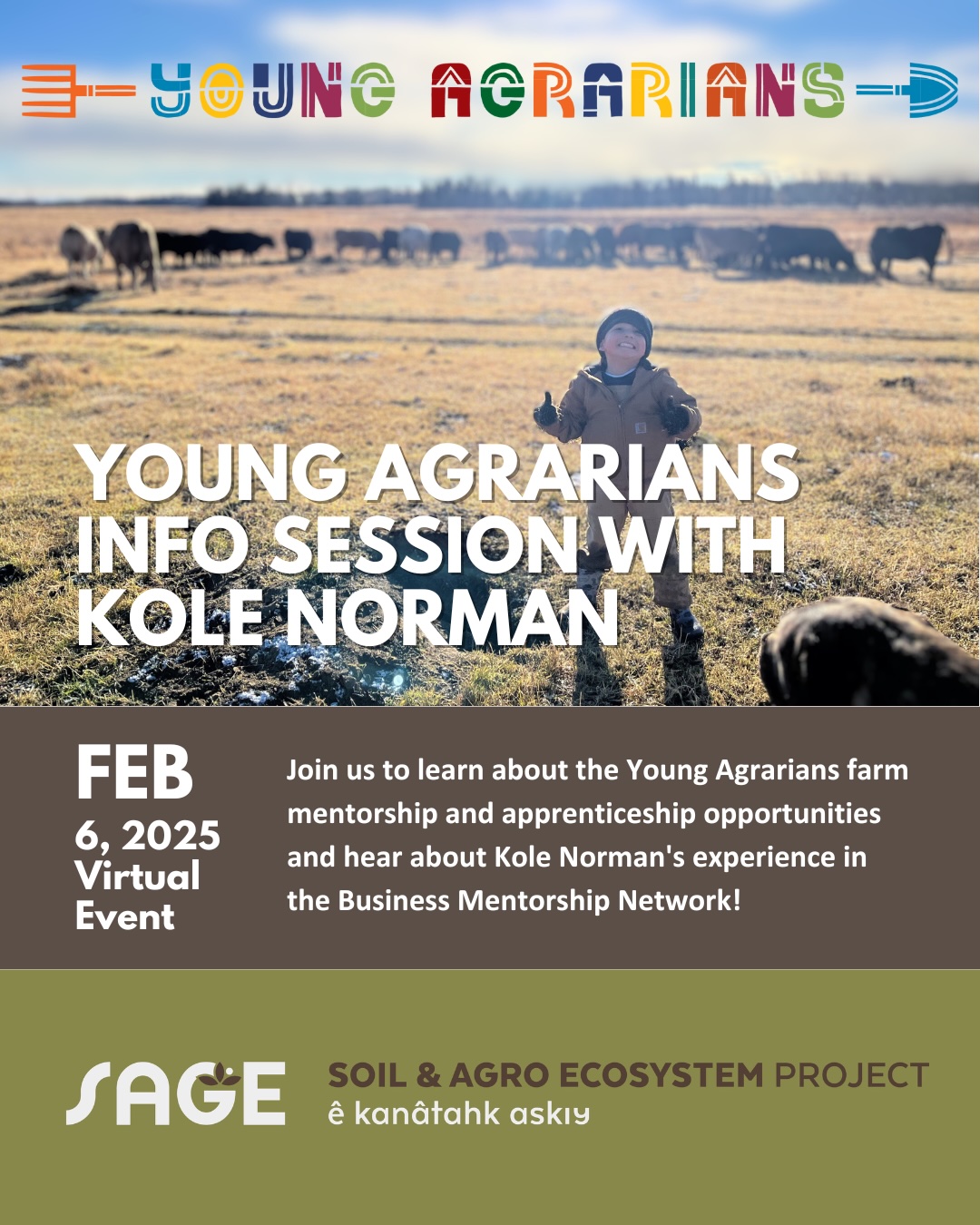

Presented in partnership with the Alberta AgriSystems Living Lab and Bridge to Land Water Sky Living Lab.
Join us to learn more about the history of Indigenous agriculture in western Canada with Dr. Sarah Carter!
Dr. Carter will discuss how breaches of Treaty and government policies undermined the success of Indigenous farmers on reserves.
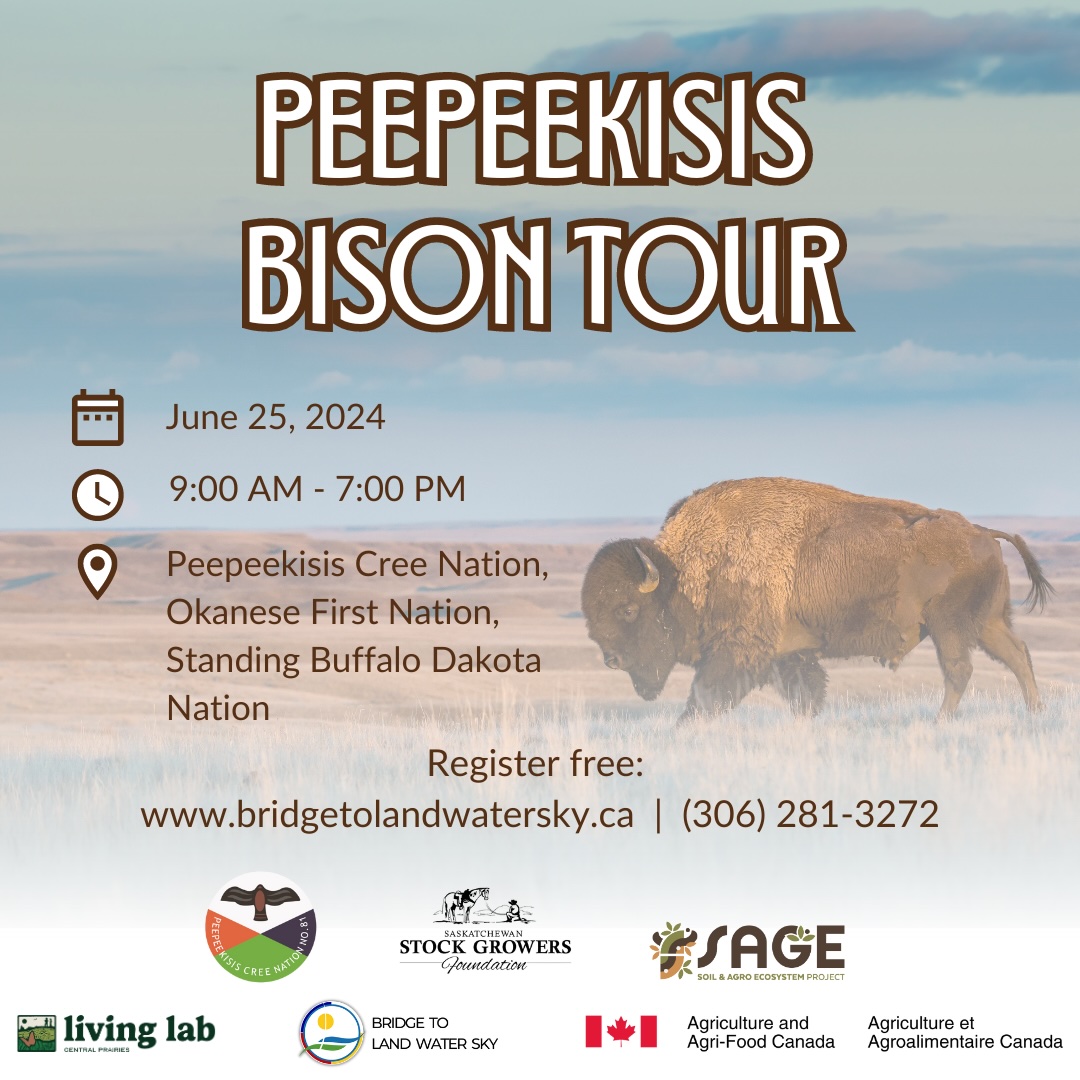
Come along on a Bison Tour and observe the Peepeekisis, Okanese, and Standing Buffalo bison herds, and explore the prairies. Learn about the cultural and ecological significance of bison, reconnect with our past and embrace the promise of a better future. Click the "register" button below to join the group bus tour.
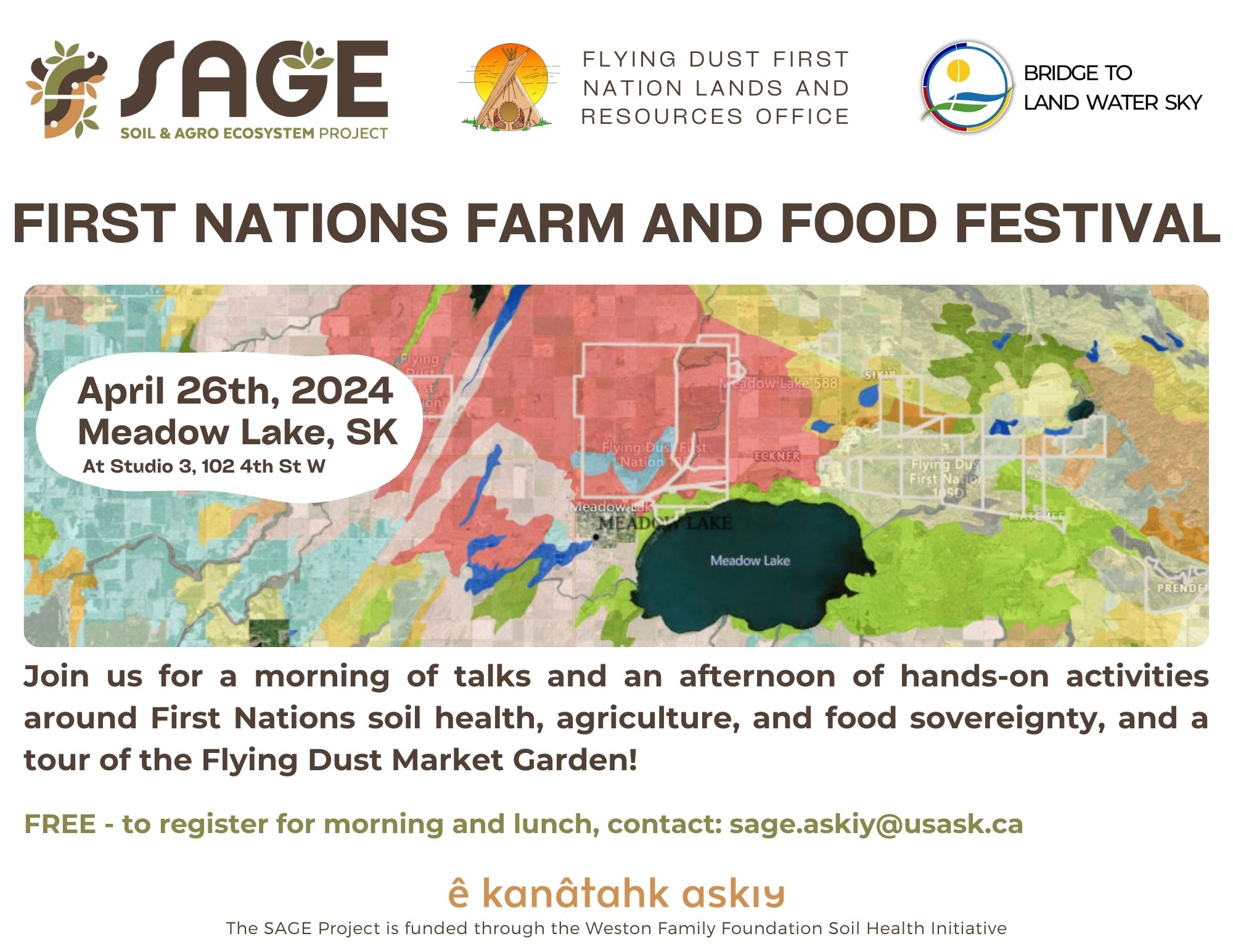
Presented in partnership with the Alberta AgriSystems Living Lab.
Join Us to learn more about 'The Ecological Buffalo' as a Keystone Species in North America. Once numbering in the tens of millions, buffalo have played a significant role in structuring the intricate food webs, trophic cascades and inter-species relationships that evolved over thousands of years.
Wes Olson has spent over 35 years working closely with buffalo first as a Parks Canada warden and now as a bison consultant. Wes is a published author and literally 'wrote the book' on buffalo ("The Ecological Buffalo: On the trail of a keystone species").
Presented in partnership with the Alberta AgriSystems Living Lab.
The Kainai Iinnii Rematriation Project (KIRP) is an eco-cultural restoration project that centers around the restoration of the land and culture of the Kainai (Blood) First Nation by re-introducing plains bison (Bison bison bison) back native mixed-grass prairie pastures on the North End region of the Blood Reserve. Bison have been absent from these lands for ~155 years and First Nation-led environmental research is being undertaken to study and better understand how re-introducing plains bison can benefit mixed-grass prairie ecosystems. Bison are considered both an ecological and cultural keystone for the Blackfoot/Kainai.
Justin Bruised Head (“Akkamootskoonaki”) works as The Kainai Iinnii Rematriation Project Coordinator at Blood Tribe Land Management. Justin was born and raised in a ranching and rodeo family in Southern Alberta, and is a member of the Blood Tribe First Nation of the Blackfoot Confederacy in Treaty 7. Justin received his Post-Secondary Diploma in Renewable Resource Management in 2017, and Bachelor of Applied Science Degree in Ecosystem Management in 2019 from the Lethbridge College. He thoroughly enjoys the outdoors and is an advocate for grassland conservation & restoration on the Blood Reserve.
Presented in partnership with the Alberta AgriSystems Living Lab.
In this webinar, we will delve into the narratives and teachings surrounding the rekindling of our relationship with the Buffalo. Glenda will take us on a personal journey of transforming theoretical kinship teachings into real-life connections with Buffalo prophecy and cultural lifeways. One aspect of this narrative focuses on a group of Indigenous women who have retraced ancestral footsteps back to the physical spaces where the Buffalo are able to roam freely in Banff National Park and Grasslands National Park. Through these journeys of remembrance, we will explore the significance of Buffalo songs, teachings, and stories in awakening our ancestral DNA and deepening our understanding of relational symbiosis, ecological keystone engineering, and kinship ties with our relatives.
Glenda Abbott is nehiyaw-Plains Cree from Pelican Lake First Nation, Saskatchewan in Treaty 6 Territory, Canada. Glenda is the Indigenous Technical Assistant Lead with the Indigenous Birth Justice Network and works with the International Buffalo Relations Institute on the SAGE- ē kānātahk askiy. Glenda is a grandmother and mother who has dedicated much of her time learning from knowledge keepers to revitalize and reclaim Indigenous knowledge systems. She has traveled extensively to work with Indigenous initiatives and communities throughout North America and internationally. Her work focuses on indigenous-led community based projects and cultural revitalization initiatives related to food sovereignty, Indigenous midwifery/doula, traditional medicine, Indigenous holistic wellness, and land-based education curriculum development.
Understanding the Land; learning about soil health from Indigenous and Western Science perspectives. Join us in collaboration with the Alberta AgriSystelms Living Lab and Bridge to Land Water Sky for a webinar with Dr. Melissa Arcand and Teresa Porter, SAGE team soil scientists.
This webinar was recorded.
